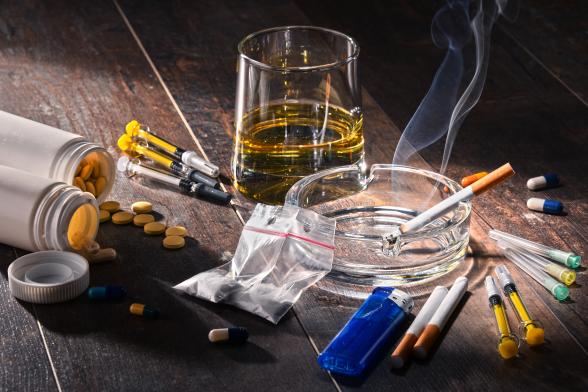
If you’re using prescribed medications in a way not recommended by a doctor, then you’re most likely abusing them. This misuse can easily lead to drug addiction with a series of unwanted side effects.
There are several factors why some people misuse their prescribed medicines. Some of these may include family and peer pressure, stress from work, or mental and emotional fatigue.
Misuse and addiction to substances may occur to people of different ages. Drugs that are often abused are sedatives, stimulants, opioid painkillers, anti-anxiety medications, and anti-depressants.
Moreover, children and young adults are at most risk, and it is an increasing problem. Their early exposure to drugs may become a hobby and may give them access to perform further experimentation, which may soon lead to addiction.
Therefore, it is important to clean your cabinet of unwanted drugs as early as possible and follow these basic tips to prevent anyone from your home from abusing them:
1. Follow Directions Properly
It is important to use your medication only if prescribed by your attending physician. Never think about stopping or changing the dosage or usage time assigned to you.
Always ask your doctor if you think you need more of it or if your medicines don’t seem to be working. Also, following directions is the best way to protect yourself from adverse side effects such as illness or even death.
You may also ask your doctor if there are special instructions to be followed depending on what substances you’re taking. Some may require you to:
- Avoid alcohol: Consuming alcohol during medication may cause nausea and vomiting.
- Limit exposure to sunlight: Some drugs may cause photosensitivity. It may trigger autoimmune diseases such as lupus, or skin disorders such as eczema.
- Take medication with food or water, or as needed: Some drugs may require food to avoid side effects such as stomach ache, others only require water or nothing.
2. Check If You’re Getting Proper Medication
It is necessary to inform your doctor about your condition and make sure to relay the problem accordingly. Also, tell them about the medicines you’re currently taking, such as over-the-counter (OTC) medications, alcohol, and other supplements.
It is necessary to prevent side effects that may occur and to avoid misuse of such.
3. Avoid Peer Pressure And Temptation
Surround yourself with people who can bring positivity to your life. So, if you let yourself get influenced by people who are into drug abuse, you are most likely to adapt to their lifestyle.
Moreover, start developing healthy and non-toxic relationships with friends and avoid those who pressure you to misuse substances. If you want to stay drug-free, make ‘saying no’ a habit or prepare a good excuse to prevent you from giving in to pressure.
4. Never Use Another Person’s Medications
No person is created equal, not even twins. Your medication, along with its proper dosage and usage time, is only specific for you.
It is specifically written based on your physician’s evaluation of your condition. So, even if you have the same condition as other people, it may not be the right dose and medication for your body.
5. Discuss The Dangers With Your Children

As mentioned above, young adults are at risk of falling into drug misuse. Usually, drug abuse starts with alcohol dependence and cigarettes, which are both easily accessible. Some teenagers fall prey to drug misuse and addiction because of some factors such as:
- Mental conditions like anxiety, depression, and panic attacks
- Family history of drug misuse
- Past traumatic events
- Feelings of social rejection and low self-esteem
It is necessary to educate your children about the consequences of drug abuse and how it could affect their health and lives. If you’re having difficulties in approaching your children, follow these tips:
- Ask them about their opinions
- Consider using social media platforms
- Discuss reasons not to misuse drugs
- Consider sharing experiences with drugs (if applicable)
6. Understand How Medication Works
If you’re not familiar with your medications, don’t hesitate to ask your doctor about them. You should know what they can do to your body, what side effects to expect (if there’s any) and how to alleviate them. Again, check if there are special instructions you need to follow, such as avoiding alcohol.
7. Avoid Buying Medications Online
Some websites sell counterfeit drugs which could pose unwanted health risks. According to FDA, these rogue websites usually offer great discounts to tempt consumers and use a fake logo that may resemble a renowned brand.
They also offer medications that do not require valid and legal prescriptions. Here are basic tips to determine if your online pharmacy is illegal. Check if:
- they allow you to order medications that is not a valid prescription from your doctor.
- they don’t have a licensed pharmacist available to answer your questions.
- they offer products at extremely low price which seems too good to be true.
- they are located outside your country and offers worldwide shipping.
Furthermore, these drugs may lack active ingredients which are needed for conditions and illnesses they are supposed to treat. They may also contain inappropriate substances, which may be responsible for your drug misuse and further addiction.
8. Visit Your Doctor Regularly
It is important to have a regular visit with your doctor to make sure that your medications are still working or if you’re still on the right dosage.
Depending on the illness, some medicine requires lowering the dosage if your doctor sees a positive recovery. Moreover, your chances of getting treated may increase, and the risk of having complications from your current condition can be prevented.
Last Piece of Advice
All of us are vulnerable to drug addiction. The best way to combat addiction is to prevent them from attacking us. And we could do that by following these easy tips.
Share these tips with your friends and family, and promote healthier wellbeing free from drug abuse and addiction. And if you have prescription drug problems, don’t hesitate to call your doctor right away and get the best treatment you deserve.
Conclusion:
Preventing prescription drug misuse is essential for maintaining individual health and safety. By following simple tips and being mindful of medication use, we can minimize the risks associated with prescription drug misuse. Properly managing medications, communicating with healthcare providers, storing medications securely, and educating ourselves and others about the potential dangers of misuse are key steps to prevent harm and promote responsible medication use.
FAQs on Tips to Prevent Prescription Drug Misuse:
How can I properly manage my medications?
Proper medication management involves reading and following the instructions provided by your healthcare provider or pharmacist. Take medications as prescribed, avoid sharing medications with others, and never take someone else’s prescription drugs.
Why is it important to communicate with healthcare providers?
Effective communication with healthcare providers is crucial to ensure the safe and appropriate use of prescription medications. Inform your healthcare provider about your medical history, existing medications, and any concerns or side effects you may experience.
How should I store medications securely?
To prevent misuse and accidental ingestion, store medications in a secure and locked cabinet or container. Keep them out of reach of children, pets, and anyone who may have the potential to misuse them.
How can I dispose of unused medications properly?
Unused or expired medications should be disposed of properly to prevent misuse. Follow local guidelines or consult with your pharmacist for safe disposal options, such as drug take-back programs or special disposal bags.
How can I educate myself and others about prescription drug misuse?
Stay informed about the risks and potential side effects of prescription medications by reading the accompanying patient information leaflets or researching reliable sources. Educate friends, family members, and loved ones about the importance of responsible medication use and the dangers of sharing or misusing prescription drugs.
